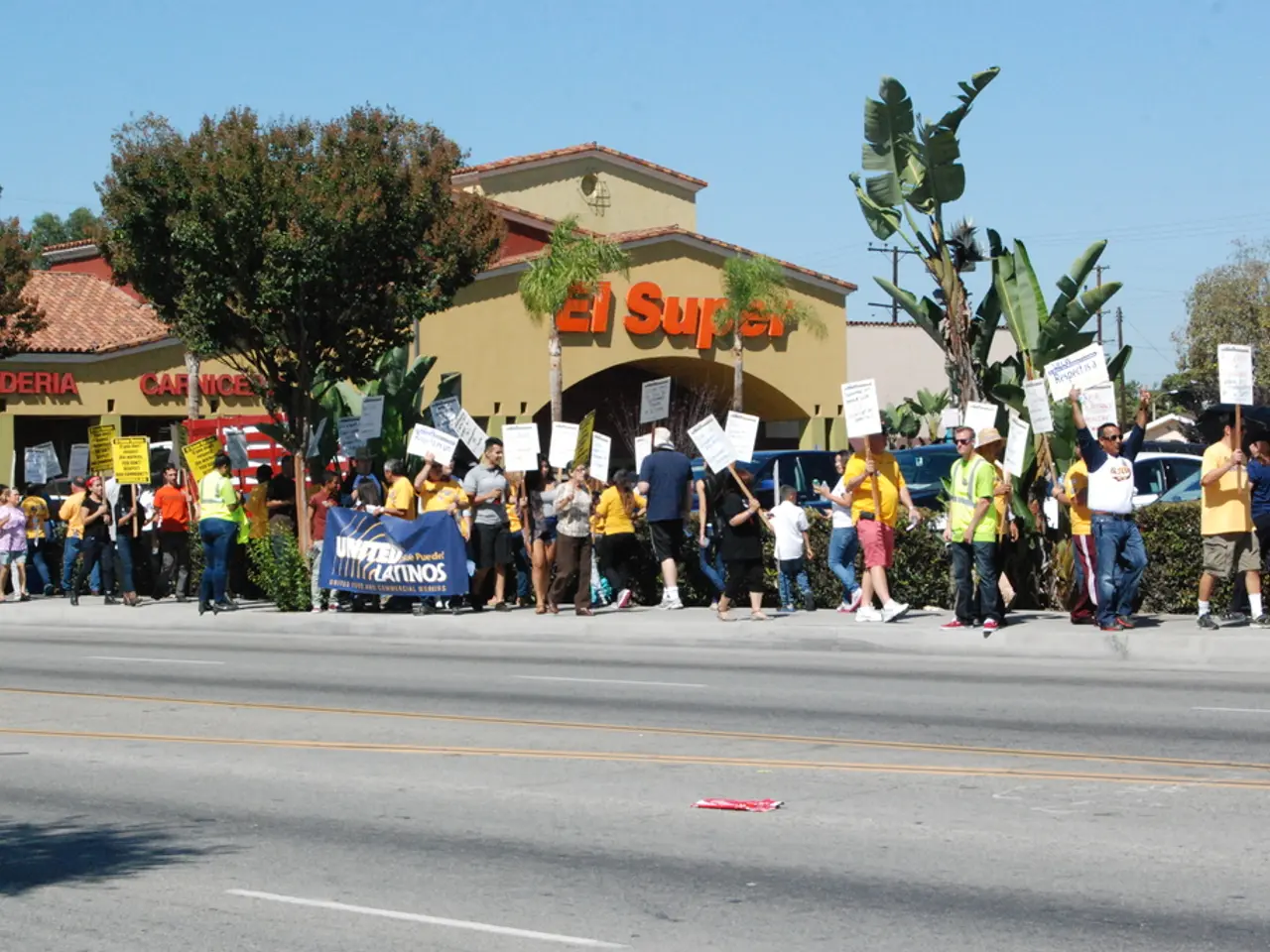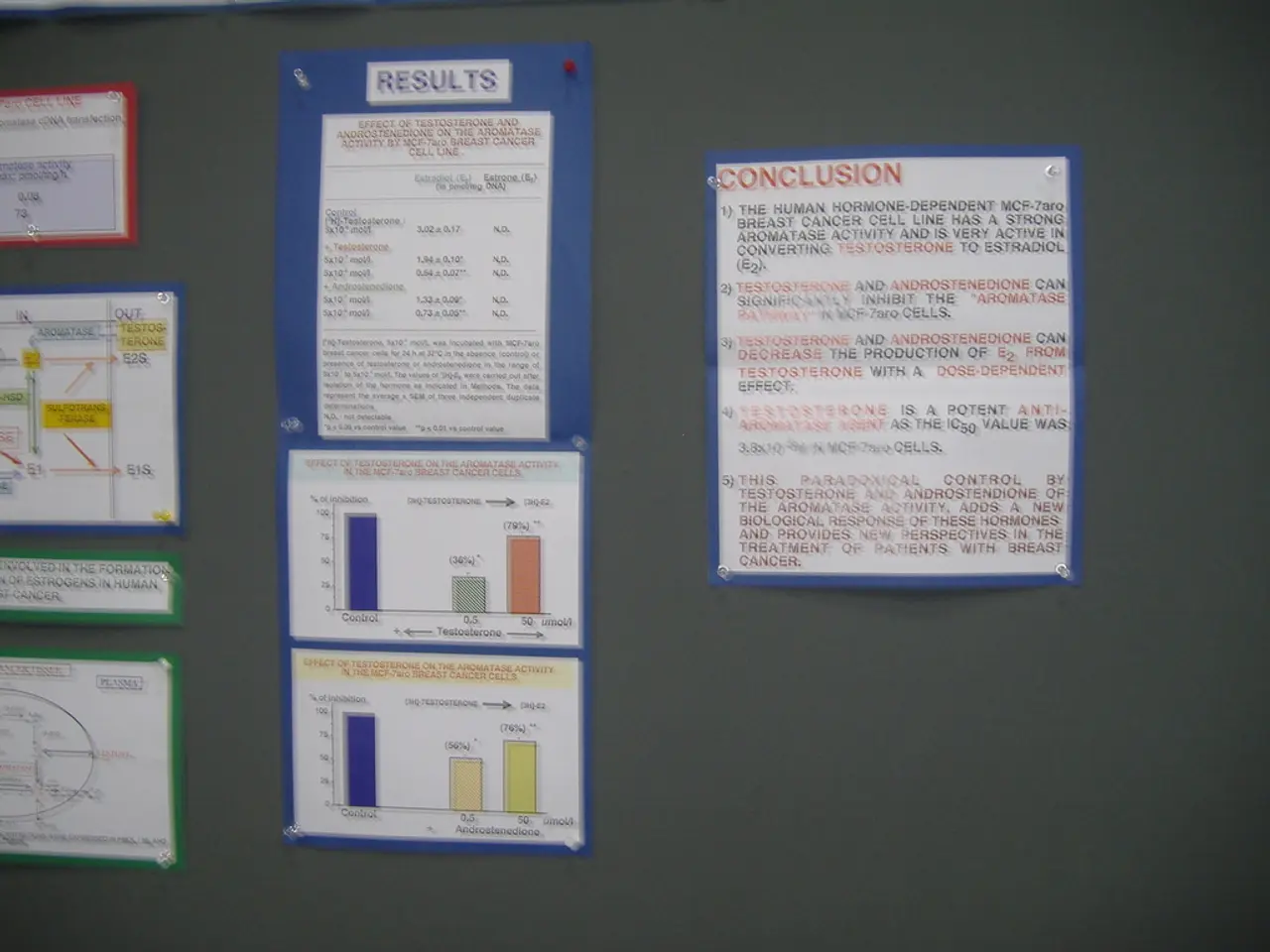Political parties in Baden-Württemberg renege on pledged housing policies following their election wins.
In Baden-Württemberg, a region known for its thriving economy, a significant increase in construction costs is causing concern for the housing market. The surge in construction prices, which rose 3.2% year-on-year as of February 2025, represents a 64% increase since 2010, primarily due to inflation in construction materials and labor costs.
Key drivers of this price hike include higher prices for steel, concrete, and wages, as well as a shortage of skilled labor, particularly acute in Baden-Württemberg and Bavaria. These labor shortages are causing project delays, further pushing up costs.
The rise in European Central Bank (ECB) interest rates has also tightened mortgage affordability, indirectly impacting new housing development. This cost inflation is compressing developer profit margins, making construction projects less viable, especially in metropolitan areas where land prices are already high.
Developers are responding by adopting strategies such as greater prefabrication, longer supplier contracts, and design simplification to manage costs. However, these measures have not fully offset the pressure on profitability.
The combined effect of these factors has led to a slowdown in the number of new apartments being built. Building permits and completions show only moderate growth, with residential building permits increasing by about 1.2% in early 2025, but overall new housing starts have not kept pace given the rising costs and delays.
State subsidies and loan programs exist to ease financing, but they have not fully offset the cost impact on housing development. The head of the municipal housing company GGH in Heidelberg, Peter Bresinski, criticised the slow progress in housing construction, attributing the increase in construction costs to the strong focus on energy efficiency of buildings, with ancillary construction costs increasing by 35 percent.
Bresinski expects further declines in new apartment construction, with 2,800 completions expected in 2025 and 2,400 in 2026. This stagnation in new apartment construction limits housing supply amid ongoing demand, exacerbating the housing shortage.
The Association of Baden-Württemberg Housing and Real Estate Companies (VBW) held a summer reception, with Jürgen Schmidt, the president of the VBW, in attendance. Schmidt made a sarcastic comment about the lack of political action regarding the housing shortage.
A political agreement was reached for flexibility in parking space requirements in the state building code, allowing municipalities to decide. However, none of the housing policy spokespeople of the four state parliamentary factions were eager to speed up housing construction.
Born's proposal to establish a state-owned housing company focused on constructing affordable social housing was met with clear rejection from other party representatives. The number of new apartments built by VBW's member companies declined in 2023, with only 4,000 apartments built, compared to almost 5,700 in 2022. The GGH in Heidelberg, led by Bresinski, is the largest landlord in the city with over 7,300 apartments.
Despite the challenges, there is a recognition of the need for action. Cindy Holmberg (Greens), Natalie Pfau-Weller (CDU), and Daniel Born (SPD) agreed on this, but opinions diverged on other issues. Haag's suggestion to abolish the requirement for installing solar panels in new buildings and to lift greening requirements did not receive unanimous approval.
The former SPD Chancellor Olaf Scholz failed to meet his self-imposed target of 400,000 apartments per year during the 2021 election campaign. No political representatives invited by VBW for a discussion on affordable housing directly opposed the plans, but none promised a specific number of apartments to be built annually either.
Municipalities in Baden-Württemberg are grappling with the consequences of rising construction costs, as evidenced by the slowdown in new apartment construction and stagnant housing supply. This issue has become a focus of political discussions, with the Association of Baden-Württemberg Housing and Real Estate Companies (VBW) advocating for policy changes to address the housing shortage. However, a political agreement on speeding up housing construction has been slow to materialize, leading to criticism from industry figures like Peter Bresinski, the head of GGH Heidelberg.






